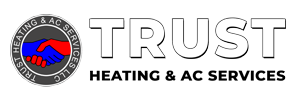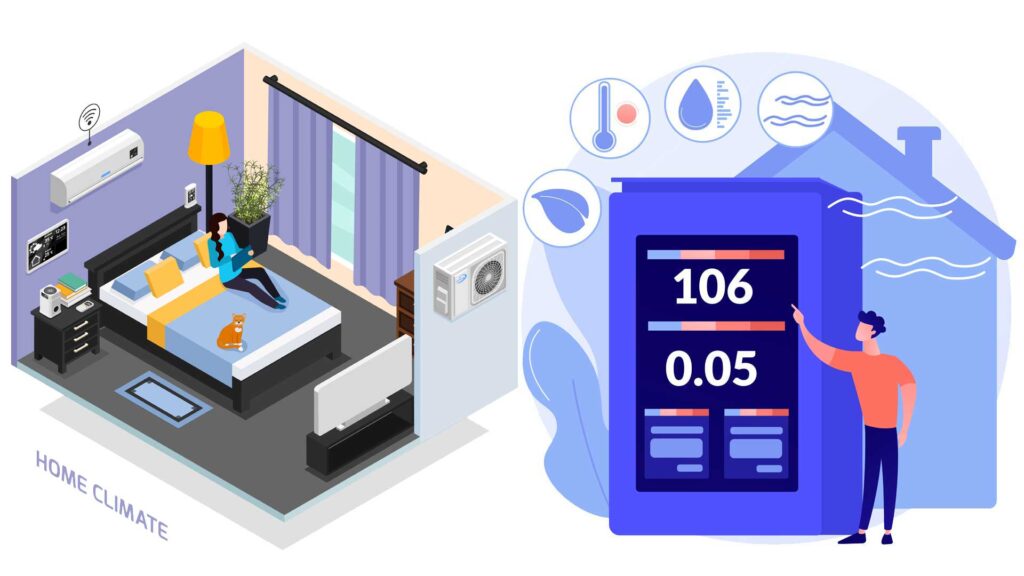Air conditioning (AC) systems are essential for maintaining comfort in homes and workplaces, especially during extreme temperatures. However, like any mechanical system, AC units can develop issues over time due to wear and tear, improper maintenance, or external factors. Identifying common air-conditioning problems and their respective repairs can help prevent costly breakdowns and ensure optimal performance. Below are the most frequent AC issues and their solutions.
- Refrigerant Leaks
Problem: Low refrigerant levels can cause an AC unit to lose its cooling efficiency. Leaks can occur in the refrigerant lines due to corrosion, improper installation, or physical damage.
Solution: A certified HVAC technician should locate and repair the leaks before recharging the refrigerant to the correct levels. It is crucial to ensure that the system uses the correct type and amount of refrigerant as per manufacturer specifications.
- Dirty or Clogged Air Filters
Problem: Clogged air filters reduce airflow, making the AC work harder, leading to higher energy consumption and potential freezing of the evaporator coils.
Solution: Regularly clean or replace air filters every 1–3 months, depending on the usage and environmental factors such as pet hair and dust levels.
- Frozen Evaporator Coils
Problem: Evaporator coils absorb heat from the air, but when they freeze, they prevent the AC from cooling effectively. Causes include restricted airflow, dirty filters, or low refrigerant levels.
Solution: Turn off the AC to allow the coils to thaw, clean the filters, and ensure proper airflow. If freezing persists, check for refrigerant issues and seek professional assistance.
- Malfunctioning Thermostat
Problem: An inaccurate or unresponsive thermostat can lead to temperature inconsistencies and inefficient cooling.
Solution: Replace thermostat batteries, recalibrate it, or upgrade to a programmable or smart thermostat for improved accuracy and efficiency.
- Electrical Issues
Problem: Worn-out or faulty electrical connections, blown fuses, or tripped circuit breakers can prevent the AC unit from functioning properly.
Solution: Reset tripped breakers and inspect wiring for visible damage. If electrical issues persist, contact an HVAC technician to inspect and repair faulty connections.
- Clogged Drain Line
Problem: The condensate drain line removes excess moisture from the AC system. When clogged, it can cause water leaks, mold growth, and humidity issues.
Solution: Regularly clean the drain line using a wet/dry vacuum, vinegar solution, or professional drain cleaner to prevent blockages.
- Faulty Compressor
Problem: The compressor is the heart of an AC system, and if it fails, the unit won’t cool properly. Overheating, electrical faults, or refrigerant issues can cause compressor failure.
Solution: A technician should diagnose whether the compressor can be repaired or if a full replacement is needed. Proper refrigerant levels and regular maintenance can extend compressor lifespan.
- Fan Motor Issues
Problem: AC systems use fans to distribute air. If a fan motor malfunctions, it can lead to poor airflow, overheating, and inefficient cooling.
Solution: Inspect the fan blades for damage, clean accumulated debris, and lubricate motor bearings. If the motor is faulty, a technician may need to repair or replace it.
- Unusual Noises
Problem: Rattling, buzzing, or grinding noises indicate issues such as loose parts, motor problems, or refrigerant leaks.
Solution: Identify the source of the noise, tighten loose components, lubricate moving parts, and replace damaged parts as needed.
- Short Cycling
Problem: The AC turns on and off frequently without completing a full cooling cycle, which can strain the system and increase energy costs.
Solution: Causes include dirty filters, thermostat issues, or oversized AC units. Ensure proper maintenance, recalibrate the thermostat, or consult an HVAC professional for resizing recommendations.
Conclusion
Routine maintenance and timely repairs are key to keeping an air-conditioning system running efficiently. By addressing minor issues early, homeowners can prevent costly breakdowns and extend the lifespan of their AC units. If persistent problems arise, consulting a professional HVAC technician ensures a proper diagnosis and effective resolution.

